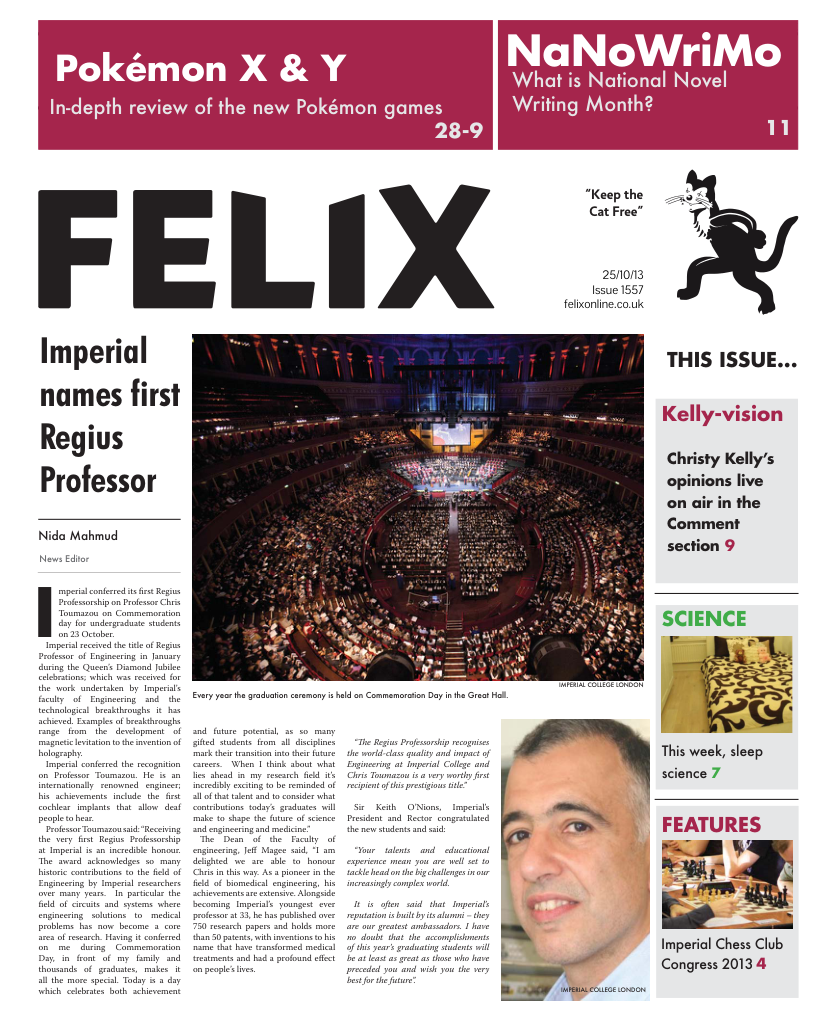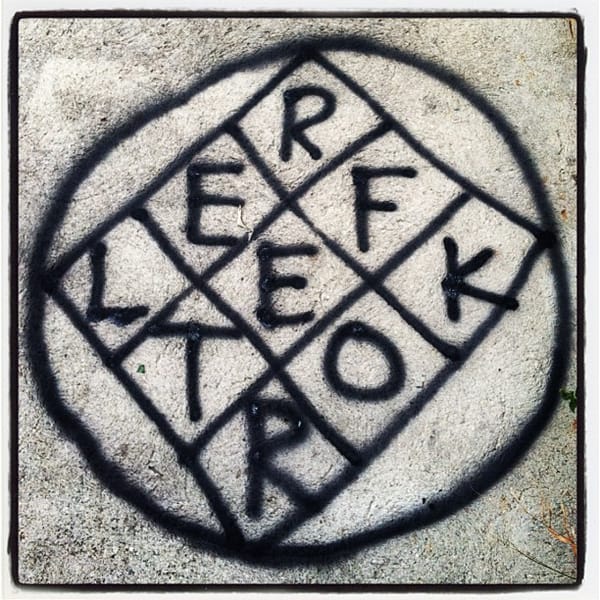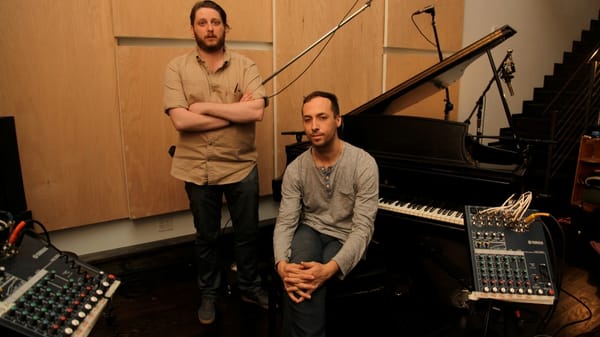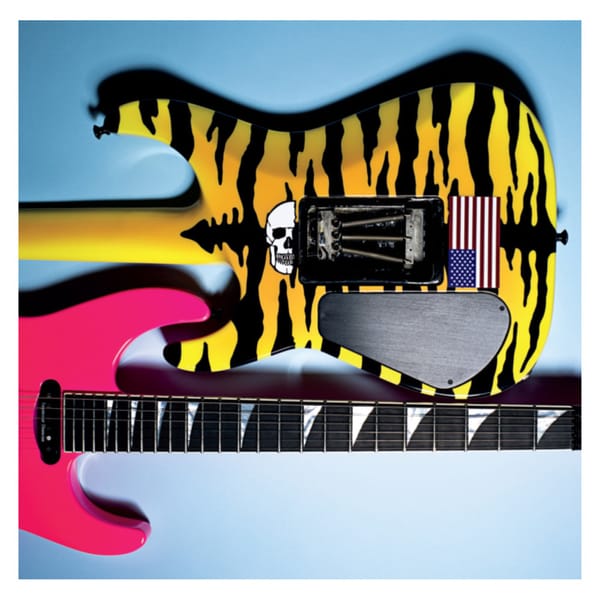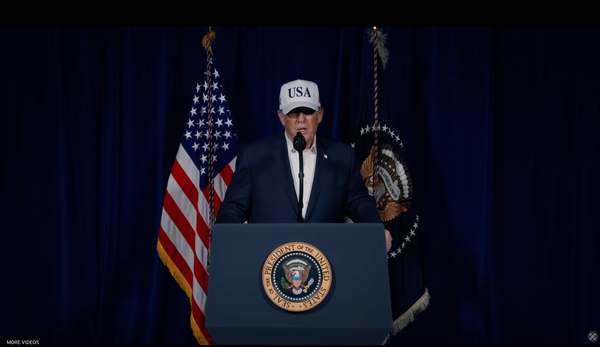Live Review - London Grammar
Fred Fyles has an ambivalent experience at Electric Brixton

As they play, the screens behind London Grammar display visuals of flocks of birds, and wisps of smoke; these are perhaps perfect representations of their music. Transient and fleeting, most of the tracks on their debut album If You Wait begin minimally, swelling to a crescendo as the different elements come together, before ending as quickly and quietly as it began. With her piercing stare, blonde hair, and low vocal range, singer Hannah Reid may at first seem like a British Nico; but instead of an icy teutonic delivery, her voice has a warm, more soulful quality, reminiscent of Sade Adu or Jessie Ware. She is joined by guitarist Dan Rothman and multi-instrumentalist - playing synth, drums, and djembe - Dot Major, who wrap their sounds around Reid’s forceful, mournful melodies to create restrained, almost polite electronic pop. Despite their meteoric ascent into success (they’ve only been releasing music for 10 months), the band don’t seem to be fazed as they come onto the stage to rapturous applause. Immediately they plunge into ‘Hey Now’, which has Reid at her most elemental, as if she is channeling some kind of ancient spirit. It is only after the third song that they break their stand-offish composure, and Reid lets us know how nervous she was before coming on stage; she tells us how glad she is to be back in London after their extensive American tour - ‘American crowds are great, but they’re just so... rowdy’ she explains. It is unlikely that they will have this problem here, since the audience seem captivated throughout, with barely anyone daring to ruin the atmosphere by dancing. Only ‘Strong’, one of their standout tracks, has people singing along. The band move through the songs relatively quickly, pausing infrequently to chat to the audience, mostly about how their time in the States was. The songs, which deal with the intricacies of youth, and the transition from teenager to adulthood seem to resound well with the audience, who seem to be mainly in their early 20s. In ‘Metal and Dust’, slightly chilly synth chords accompany Reid’s pure voice, as she dissects the trappings of an unsatisfying relationship. ‘We argue, we don’t fight’, she croons, and this non-confrontational attitude is reflected in the music, which seems to meander without actually going anywhere; in contrast, their pensive tune ‘Wasting My Young Years’ combines a minimal guitar line with piano and a sudden burst of drums, growing into a climax and then suddenly petering out to rapturous applause. Despite Reid’s compelling vocal performance, London Grammar seem to be inhabiting a genre - minimal R&B influenced electronica - that for the last few years has become completely saturated. With their precise guitar lines and use of space within composition, the band invite inevitable comparisons to The XX, another three-piece creating melancholic pop. While Reid may bring something new to the table, the music is almost overwhelmingly controlled, and at some points seems staid and clinical; perhaps the best way I can think to describe the kind of music they make is ‘Dinner Party Music’, a phrase that reflects their restrained style - for better or worse. Unfortunately, it is difficult for such music to translate to a live setting; as the evening goes on, it seems to me that Reid’s voice is something of a double-edged sword. It is incredibly unique, but in comparison the backing drums and guitar seem placid, even bland. Their cover of Kavinsky’s excellent song ‘Nightcall’, featured on the album, is a stripped down version, that lacks all of the tension and slight menace that made the original so compelling. Nothing quite matches the opening number, in which Reid’s voice was left pretty much to its own devices to fill the stage. It is impossible to talk about London Grammar without mentioning the unstoppable hype machine from which they emerged; having been together less than a year, their album was the bookie’s choice for the Mercury Prize before it was even released (they didn’t even make the shortlist). With the ghosts of former flash-in-the-pan acts (Little Boots, anyone?) there is a great amount of pressure for the trio to not only succeed, but excel. Whether they manage to survive this cycle of hype boom and bust long enough to record a second album remains to be seen, but as of yet it remains near-impossible to live up to their reputation. Early on in the evening Reid apologises for their tiredness, saying that they are still slightly jetlagged; their music seems to reflect this, and at the end of the 50 minutes or so in which they play, their sound already begins to feel dull. Hopefully the band will begin to develop once the hype has died down, but for now, it just feels a bit like something is missing.


